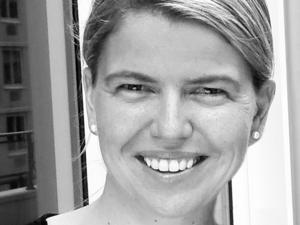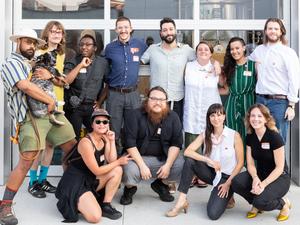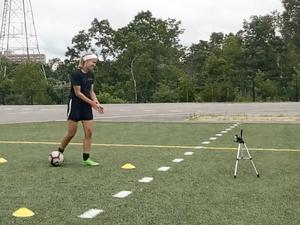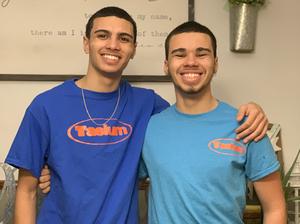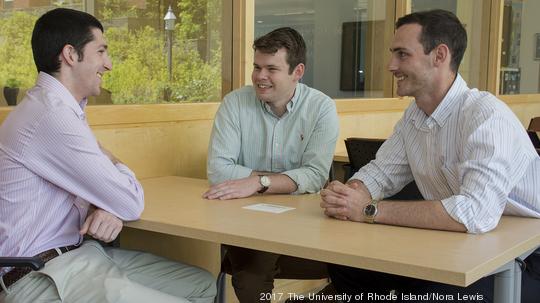
Part of the reason that cancer can grow and develop in the human body is a direct result of normal cells not being able to repair broken DNA. When normal cells can no longer complete this function, cells can mutate and turn into tumors.
For various types of breast and ovarian cancer, it is specifically the inability of the repair protein BRCA to mend DNA, which can lead to potentially deadly forms of cancer typically found in women. These cancers are also heavily reliant upon one other type of DNA repair proteins called Poly ADP-Ribose Polymerases (PARPs).
Now, scientists believe they have found a way to exploit this DNA repair weakness in an attempt to find a cure for breast and ovarian cancer.
Their company, Alcinous Pharmaceuticals, uses computer-based drug design, also known as rational drug design, to develop new molecules which can target cancer cells with BRCA mutations by blocking PARP. Other, similar PARP inhibitors exist, however.
“The traditional way of thinking has always been screening thousands upon thousands of compounds for some target that may have a therapeutic benefit,” Nicholas DaSilva, CEO of Alcinous Pharmaceuticals, told Rhode Island Inno. “We take a different approach where we take the target by itself and look at different parts of that target to try to exploit and potentially modulate its activity.”
The company launched in 2016 while DaSilva, and his other co-founders Kenneth Rose and Benjamin Barlock, were doctoral students at the University of Rhode Island. The company received two innovation vouchers from the Rhode Island Commerce Corporation, which allowed them to hire two interns in the state and complete much of their exploratory synthesis work.
While Alcinous is still working on synthesizing the compound and validating it, DaSilva has also begun to build out a scientific advisory board, which can be critical for a biotech firm as it goes about raising money and eventually trying to partner with other pharma companies.
Advisors include John Pascal, from the University of Montreal, who is a global PARP biology expert; Dr. Don Dizon, the director of women's cancers at the Lifespan Cancer Institute; Geraldine Harriman, co-founder and chief scientific officer at HotSpot Therapeutics in Boston; and Patrice Milos, CEO and co-founder of Medley Genomics.
Alcinous also recently secured up to $600,000 in funding from the Slater Technology Fund, an accomplishment that DaSilva says comes with excellent mentorship and resources.
But DaSilva says a lot more money will need to be raised before the company can get to a Phase 1 clinical trial, an incredibly expensive undertaking. DaSilva said the company has recently converted from an LLC to a C-Corp structure in order to make itself more attractive to venture capital firms.
He also said the company plans to apply for federal grant funding via the Small Business Innovation Research (SBIR) program, a process that he expects to be extremely competitive this year.
Since the Covid-19 pandemic has closed many labs and prevented scientists from conducting research to the full extent they normally would, many have turned their attention to grant writing. The virus has also made venture capital funding harder to come by.
DaSilva added that the team has a good deal of work left to do on the science.
The Alcinous team is close to synthesizing the compound it has been working on, but will also need to make more iterations so it can test other effects it may have on tumors or within the body that the company’s current computational model may have missed.
The company will then need to test the molecule on rodents with ovarian cancer to find out as much as possible about how the therapeutic will react in the body. These tests should also allow the company to substantially bolster its intellectual property.
The big goal for Alcinous, said DaSilva, is to get to a point where it can partner with a well-established pharma company or smaller pharma startups to have the resources it needs to get to a clinical trial.
DaSilva said the team sees plenty of other potential uses with its inhibitor. It may be effective against prostate cancer, pancreatic cancer and some brain and blood cancers, like glioblastoma and multiple myeloma, respectively.
While the process to ultimately get the drugs into actual patients could be lengthy, DaSilva and the rest of the Alcinous team are dedicated to making real change sooner than later. As DaSilva points out, while people hear about artificial intelligence companies working on big drug discovery processes every day, it is much harder to see the results.
“That’s great there are so many unique AI startups, but unless you are streamlining some aspect of the drug development process to get a final molecule to patients, it literally means nothing,” he said. “I’m a very results-driven person, so if we are not striving to make something tangible to bring to a patient at the end of the day, I don’t want to be involved in it. I think the rest of the team has a similar mindset.”
